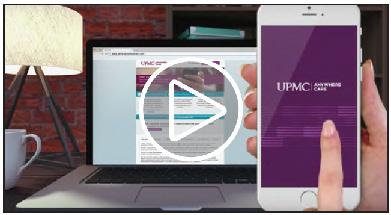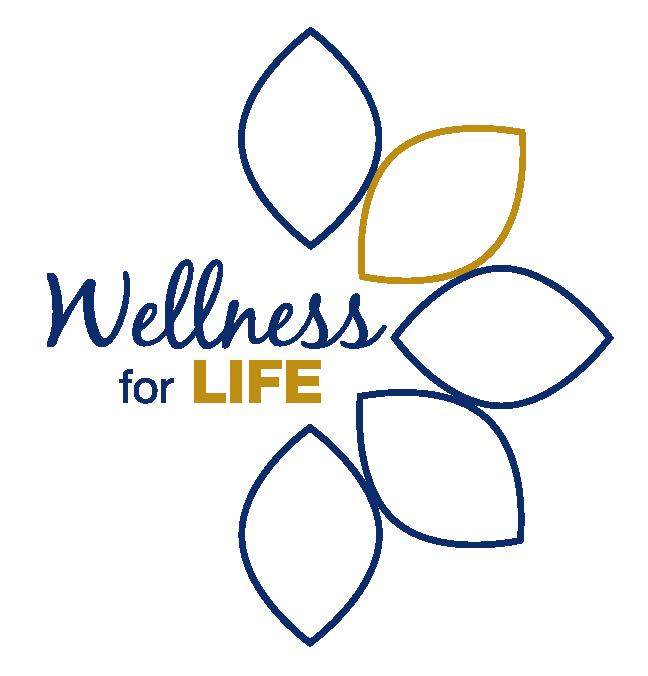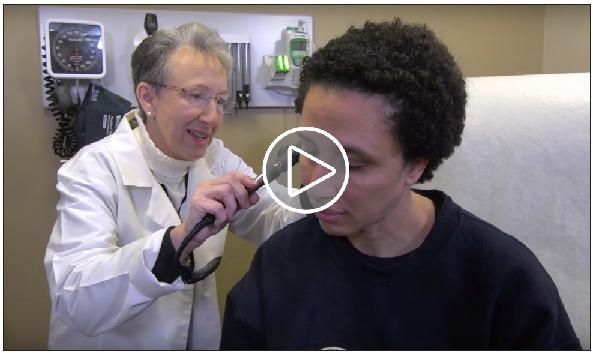Summary Guide to Benefits
for Eligible Faculty and Staff
July 1, 2023 - June 30, 2024



for Eligible Faculty and Staff
July 1, 2023 - June 30, 2024


Contact the Benefits Department
Call: 833-852-2210
Submit an inquiry: www.hr.pitt.edu/contact-ohr
Disclosure
Individuals are responsible for reviewing the benefit deductions and retirement plan contributions on their pay statement for each benefit plan every pay period. Contact the Benefits Department immediately if there are any discrepancies.
The information presented in this Summary Guide to Benefits is intended to provide a general overview and discussion of the plans. Descriptive literature is available from the carriers and the Office of Human Resources. Additional details of the benefits presented may also be found at www.hr.pitt.edu/benefits. The rights and obligations of employees and those of the University are governed by the terms of each benefit plan and, in some cases, by contracts with the insurance companies. The plans are based on current federal and state laws and are regulated by those laws. If there is a conflict between the Summary Guide to Benefits and the plan/contracts, then the plan and contracts will control.
Benefits may be modified as required by applicable laws, and benefits may be modified or terminated as deemed necessary or appropriate by the University. Any such modifications or terminations will be communicated in writing, as appropriate. Staff covered under collective bargaining agreements are governed by the terms of those agreements. No one speaking on behalf of the plans or purporting to speak on behalf of the plans can modify the terms of the plans in any way. The terms of the plans control in all instances.
Participation is open to:
» Full-time regular faculty, librarians, research associates, and postdoctoral associates
» Part-time regular tenured/tenure stream faculty at no less than 50% effort
» Part-time regular librarians designated with expectations of continued employment at no less than 50% effort
» Full-time regular staff
» Part-time regular staff
All of the above may include their spouse or domestic partner and children up to age 26
Disabled dependents may be able to continue coverage after age 26; for additional information, visit www.hr.pitt.edu/benefits.
Health and welfare plans for faculty and staff generally operate on a plan year, which runs from July 1 through June 30 (a 12-month period). These health and welfare plans include medical, dental, vision, flexible spending accounts, life, accidental death and dismemberment (AD&D), and dependent life insurances. If applicable, short-term and/or long-term disability, retirement, and long term care (LTC) benefits may be included in your benefits package, but are not subject to the plan year.
The effective date of coverage is dependent upon your date of hire. If you are hired on the first business day of the month, coverage becomes effective the first day of the same month. If you are hired after the first business day of the month, coverage becomes effective the first day of the next month. An initial benefit enrollment period for newly hired employees is 31 days from the date of hire.
For those who are subject to the plan year rules (outside of the initial benefit enrollment period), new enrollments, cancellations, and changes to coverage may only be made during future open enrollment periods or due to a qualified status change when the request for a change is made within 60 days of the life event. The effective date for a status change is the first of the month following the date of the qualifying event.
www.hr.pitt.edu/benefits/qualified
A Qualified Status Change may include:
» Marriage or divorce
» Birth, adoption, or custody of a child or stepchild
» Spouse/domestic partner’s gain or loss of employment, or obtaining or losing coverage
» Death of a spouse/domestic partner or child
» Loss of Medicaid or CHIP coverage or becoming eligible for a premium assistance subsidy
You must make your election within 60 days of when the qualified status change occurs. Appropriate documentation must be submitted for any dependents being added to health and welfare plans. Documentation requirements can be reviewed at www.hr.pitt.edu/eligibility. Please note that primary care physicians and primary dental offices may be changed at any time during the year directly through the respective insurance carrier, not just at open enrollment or because of a status change.
1. Visit login.pittworx.pitt.edu, and log in via Pitt Passport with your Pitt username and password (if not logged in)
2. In Pitt Worx, select Benefits from the Me page
3. Select the Make Changes button
4. Follow the on-screen instructions for enrolling in or making changes to your benefits.
For detailed steps about enrolling, visit the Pitt Worx Hub at pittworx.pitt.edu/hub/benefits.
Note: If you are adding dependents, you must add them in Before You Enroll and upload the appropriate documentation in Document Records prior to enrolling. You will not be able to enroll new dependents in benefits coverage until documentation is added.
After logging in to Pitt Worx, select Benefits from the Me page, then select Your Benefits. On the My Benefits page, select Active Program
UPMC Health Plan Member Services: 1-888-499-6885
www.upmchealthplan.com/pitt
Requires selection of a network doctor, primary care physician (PCP)c
No coverage provided outside the UPMC Health Plan network, except in the case of an emergency
UPMC ADVANTAGE NETWORK
Higher Benefit-UPMC Owned Facilitiesa
Health Care FSA/HSA Option+
Copayments for various services are listed below
Eligible for Health Care FSA; More info on page 16
May select any doctorc
Provides coverage to any doctor or hospital
Eligible for Health Care FSA; More info on page 16
Health plan payments for services are noted. Copayments for the HMO, and deductibles and coinsurance for the PPO plans, apply as stated above.
May select any doctorc
Provides coverage to any doctor or hospital
Listed is a sampling of the Advantage Network hospitals. Visit www.upmchealthplan.com/find to confirm all participating Advantage Network facilities:
» UPMC Children’s Hospital of Pittsburgh
» UPMC Magee-Women’s Hospital
» UPMC Altoona
» UPMC East
» UPMC Hamot
$2,000
$5,000
» UPMC McKeesport
» UPMC Montefiore
» UPMC Northwest
» UPMC Passavant
» UPMC Presbyterian
» UPMC Shadyside
» UPMC Western Psychiatric Hospital
Listed is a sampling of the participating UPMC Health Plan network facilities. Visit www.upmchealthplan. com/find to confirm all other facilities that particpate with UPMC Health Plan:
» Butler Memorial Hospital
» Heritage Valley
» Latrobe/Westmoreland/ Frick
» St. Clair Memorial Hospital
» The Washington Hospital
1. Visit www.upmchealthplan.com
2. Select “Find Care” (top of page)
3. Choose either the “I’m A Member” or “I’m Just Browsing” tab (If you choose “I’m A Member,” it will ask you to enter your member ID number to verify your plan)
4. Select the type of care (medical or behavioral health)
5. Choose to search either by name or by specialty
6. Enter zip code
Learn more by visiting www.hr.pitt.edu/find-provider
1. Access UPMC AnywhereCare by visiting www.upmchealthplan.com/anywhere-care
2. Select the “Visit UPMC AnywhereCare” box to log into your MyUPMC account; if you are a new user, you can create an account through the sign-up process
3. Have a face-to-face conversation with a UPMC provider over live video on your phone, tablet, or computer within minutes to discuss your symptoms
4. Receive a diagnosis and treatment plan; prescriptions are sent directly to your pharmacy
Learn more by visiting www.hr.pitt.edu/anywherecare
The Patient Protection Notice can be found at www.hr.pitt.edu/patient-notice
* One or more covered family members may satisfy these amounts.
The Summary of Benefits and Coverage (SBC) and uniform glossary of terms, developed by UPMC Health Plan, as mandated by the Patient Protection and Affordable Care Act (PPACA), are available online at www.hr.pitt.edu/benefits
+ Visit www.upmchealthplan.com/pitt for additional HIA and HSA information.
1 This plan has an embedded out-of-pocket maximum (OOP max) for in- and out-of-network benefits, which means when an individual within a family reaches his or her individual OOP max, only that person on the plan is considered to have met the OOP max; or when a combination of family members’ expenses reach the family OOP max all covered members are considered to have met the OOP
2 Monthly statements are generated and posted to your UPMC Consumer

The Panther Plus and Panther Advocate plans are merging into one, new plan - Panther PPO. Any current members of these plans who do not make benefits selections during open enrollment will be automatically placed into the new Panther PPO plan for the 2023-24 term. Since that means your coverage will be changing, please familiarize yourself with the information provided here. If you feel that another plan would better suit your needs, you must make this selection during open enrollment.

www.hr.pitt.edu/medical
*Individuals who do not elect coverage will receive a $50 monthly benefit credit in their paycheck. The monthly benefit credit for individuals enrolled in coverage is reflected in the employer contribution portion of the medical insurance premium.

Note: If you live, or are planning to live, outside of the Western PA area, it is recommended that you do not select the Panther Gold Plan. The coverage/in-network area for the Panther Gold (HMO) plan is limited to the Western PA area.



www.hr.pitt.edu/prescription-drug
The Prescription Drug Program applies to all plans, but Panther Basic only receives this benefit once their deductible has been met.
Short-term, 30-, 60-, and 90-day supply available through:
Retail and independent pharmacies
UPMC Health Plan: 1-888-499-6885
Tier Copayment
1 $16 Preferred Generics
2 $45 Preferred Brand and Generics
3 $90 Non-Preferred Medications (brand and generic)
4 $100 Specialty Medications (brand and generic)
5 $0 Preventive Medications (ACA)^
90-day discounted supply available through:
Mail order through Express Scripts: 1-877-787-6279
Falk Clinic Pharmacy: 412-623-6222
Pittsburgh campus office delivery available
University Pharmacy: 412-383-1850
Tier Copayment
1 $32 Preferred Generics
2 $90 Preferred Brand
3 $180 Non-Preferred Medications
5 $0 Preventive Medications
Members may obtain a 90-day supply of medication at any participating retail pharmacy, but three copayments will apply. Members may obtain a 90-day supply at a discounted price through mail order, Falk Pharmacy, or the University Pharmacy. For example, at the University Pharmacy members pay $32 for a 90-day supply of a preferred generic medication, while the cost is $48 at a retail pharmacy ($16 x 3). Specialty medication is not available at the discounted price.
Please note that the prescription drug formulary is subject to change periodically based upon the decisions of the UPMC Pharmacy and Therapeutics Committee. Examples include introduction of new medications, changes in tier level (i.e., brand name to generic), etc. For additional information about the prescription drug program, please visit www.hr.pitt.edu/prescription-drug
* Applies to Panther Basic (QHDHP) only after the deductible has been met.
^ Criteria must be met in accordance with the Patient Protection and Affordable Care Act (PPACA) of 2010 in order to receive preventive medications at no cost share.


1-866-647-3432 or www.hr.pitt.edu/lifesolutions
Life Solutions, the University’s faculty and staff assistance program, provides a broad range of services to assist faculty, staff, and their household members in balancing work and the stresses of daily life. The services are provided at no cost to you. Life Solutions services include:
» Personalized Work Life Referrals (services include: elder care, child care, legal, and financial consultation)
» Online Work Life Resources
» Six sessions per issue of confidential coaching and counseling, and 24/7 crisis support
» Disability and Family Medical Leave Outreach
www.hr.pitt.edu/anywherecare
UPMC AnywhereCare gives you 24/7 access to low-cost, high-quality care from UPMC providers to treat a number of symptoms and illnesses, accessible over live video from your smartphone, tablet, or computer. Receive a personal diagnosis and treatment plan, if necessary, all for less than or comparable to what you would pay to see your primary care physician.
Learn more about UPMC AnywhereCare at www.hr.pitt.edu/anywherecare.
www.hr.pitt.edu/cmm
As part of your UPMC Health Plan wellness benefits, the University’s Benefits Department offers Comprehensive Medication Management services. Visit with a pharmacist to answer your medication-related questions and develop an action plan to help take better control of your health. Services for pre-travel health consultations, smoking cessation, and diabetes prevention are also offered.
This service is offered at no cost to all full- and parttime regular University faculty and staff with UPMC Health Plan coverage.
Appointments can be held on the Pittsburgh campus in the Medical Arts Building, at a location of your choice, or by phone Mondays and Thursdays between the hours of 8:00 a.m. and 6:00 p.m. Schedule an appointment with a pharmacist by calling 412-383-6337 or emailing mymeds@pitt.edu.


www.amplifonusa.com/pitt
Through a partnership with UPMC, Amplifon provides medical plan participants access to a national network of over 5,500 hearing health care providers with over 3,800 hearing aid models. The benefit includes an $1,800 per ear insurance payment towards the cost of hearing aids every three years.
Learn more about the hearing aid benefit through Amplifon online at www.amplifonusa.com/pitt.
www.hr.pitt.edu/wellness-for-life
The University’s Wellness for Life program focuses on proactive health care management by offering services to you and your family members to promote healthy lifestyle activities and choices. The benefit coverage and activities sponsored by the University help support each member in the development of a healthy lifestyle.
Preventive-related benefits are covered at 100% for those who participate in the University’s medical plans without the need to make a copayment or meet a deductible, including but not limited to:
» Wellness visits with your primary care physician and related blood panels
» Mammograms, prostrate screenings, and colonoscopies
» Flu, pneumonia, and shingles vaccinations
» Adult and pediatric immunizations
The University, through UPMC Health Plan, provides health coaching to members with University-sponsored health insurance.
Lifestyle health coaches can provide needed support in a variety of areas such as physical activity, nutrition, stress management, weight management, and tobacco cessation.
Condition Management health coaches can help you manage chronic conditions such as diabetes, asthma, lower back pain, high blood pressure, and more.
Learn more and schedule an appointment online at www.hr.pitt.edu/health-coaching.
The University dedicates resources for those trying to quit smoking, including coverage for many tobacco cessation medications and tobacco cessation coaching programs.
Contact UPMC Health Plan at 1-800-807-0751 to start a coaching program today.
Additional support services are available through Life Solutions and the Comprehensive Medication Management program.

A well-balanced diet and exercise are key components of a healthy lifestyle. The availability of fitness facilities vary by campus. In Pittsburgh, Trees Hall and Bellefield Hall are available for faculty and staff to use. Additional information can be found on the Campus Recreation website at www.studentaffairs.pitt.edu/campusrecreation/facilities-and-hours/ or by calling 412-648-8320.
The University Club is also open to faculty and staff. Membership and general information are available on the University Club’s website at www.uc.pitt.edu
Regional campus information is available through the campus’ Human Resources office.
The Vaccination and Health Hub on our Pittsburgh campus provides a variety of services to the Pitt community. These services include:
» Vaccinations for Flu, COVID-19, Shingles, and more
» Biometric Screenings (Blood Pressure, BMI, and a blood panel) to help you earn Wellness Incentives
» Pre-travel health consultations and vaccines
» Comprehensive medication management
Walk-ins are welcome, but appointments are preferred. Visit www.healthhub.pitt.edu to learn more.



UPMC MyHealth@Work is an on-site Health and Wellness Center that treats a variety of health issues. Health care professionals can help you get back to feeling your best, as well as provide additional services and referrals.
» Available at no cost to all full- and part-time regular faculty and staff, regardless of insurance coverage.
» Convenient hours, by appointment only, Monday through Friday, from 7:00 a.m. to 3:30 p.m.
» Staffed by a group of highly trained UPMC providers.
» Located conveniently on the Pittsburgh campus on the 5th floor of the Medical Arts Building with adjacent parking available.
Schedule an appointment online: www.hr.pitt.edu/wellness
Some of the conditions that UPMC MyHealth@Work can help treat include:
» Acute bronchitis
» Allergies
» Blood pressure screenings
» Coughs, colds, and fever
» Headaches
» Insect bites and stings
» Laryngitis
» Minor cuts
» Nausea and vomiting
» Rashes
» Sinusitis
» Strains and sprains
» Suture removal
» Urinary tract infections
» Vaccinations
UPMC MyHealth@Work health care professionals can support the treatment program you already have in place with your doctor. Care you receive at UPMC MyHealth@Work is electronically shared with your doctor so that you can follow up with him or her as needed. The Center is not meant to serve as a replacement for your primary care physician.
If medications are recommended as part of your UPMC MyHealth@Work visit, they can be electronically prescribed to your preferred pharmacy. Learn more about MyHealth@Work by visiting www.hr.pitt.edu/wellness.
Faculty and staff can participate in the Wellness Incentives program to earn reward dollars for completing healthy activities. Your reward dollars can be used to cover the cost of certain health care expenses. If you participate in a health care flexible spending account (FSA), those monies must be exhausted first before earned reward dollars can be used.
Effective July 1, 2022, reward dollars can be used to purchase over-the-counter products and to pay for dental and vision expenses, just like you would use an FSA.
For more information about the Wellness Incentives program and to find a list of included activities, visit www.hr.pitt.edu/incentives.
Please note that activities and associated reward dollars are subject to change.
*For Panther Basic members, any earned reward dollars will be applied to your September 2024 paycheck.
Incentivize

Now, everyone can earn up to $200 in reward dollars no matter what plan they choose. This means you can get more money for investing in you!
How the Plan Works
Requires selection of a primary dental office (PDO) in the Western PA DHMO network.*& All services must be coordinated through the designated dentist listed on the insurance card presented at the time of service.+ PDO referrals required for specialty and pediatric care.*
Plan payment accepted by PDO, or for certain services, patient responsible for fixeddollar copayment. Claims will be denied for services provided by anyone other than the designated PDO. If a PDO is not elected at enrollment, one will be assigned. Each participant can have their own PDO.*
May select any dentist*
Plan payment accepted, or for certain services patient responsible for coinsurance as percent of maximum allowable charge (MAC).
MAC accepted as payment in full by participating provider (Concordia Advantage dentist); non-participating provider may issue a balance bill.
May select any dentist*
Plan payment accepted, or for certain services patient responsible for coinsurance as percent of maximum allowable charge (MAC).
MAC accepted as payment in full by participating provider (Concordia Advantage dentist); non-participating provider may issue a balance bill.
*
&
**
^
1
$50/individual; $150/family maximum deductible to be applied to ALL services, including preventive, diagnostic, and orthodontics and to be paid one time per plan year.
$50 individual; $150/family maximum deductible to be applied and paid one time per plan year and waived for preventive, diagnostic, and orthodontics.
United Concordia: 1-877-215-3616
www.unitedconcordia.com
*Locate Participating Providers in the United Concordia network:
1. Visit www.unitedconcordia.com
2. Select “Find a Dentist”
3. Enter a location or dentist name
4. For the Pennsylvania DHMO plan Primary Dental Office selection, select “DHMO Concordia Plus General Dentist” in the “Select Network” search box located in Western PA only
Use the Provider ID to designate the PDO(s) when enrolling+
5. For the Concordia Flex I and II plans, select “Advantage Plus” in the “Select Network” search box
+ Existing participants must contact United Concordia directly at 1-877-215-3616 to change your primary dental office prior to seeking services.



Note: If you live, or are planning to live, outside of the Western PA area, it is recommended that you do not select the Concordia Plus Managed Care (DHMO) plan. The coverage/in-network area for the Concordia Plus Managed Care (DHMO) plan is limited to the Western PA area.

www.hr.pitt.edu/vision
All participants, regardless of age, are eligible for a comprehensive eye examination and one pair of eyeglass lenses, along with an allowance for frames OR contact lens evaluation and fitting, once every 12 months from the last date of service.
In-Network: Requires utilization of providers in the Davis Vision by MetLife network.*
Out-of-Network: May utilize providers outside the Davis Vision by MetLife network.
Participants who utilize an out-of-network provider are responsible for paying all billed charges and will be reimbursed subsequently (after submitting claim forms to the carrier) up to the specified out-of-network schedule allowance as stated below.
In-Network Out-of-Network In-Network Out-of-Network
Eye Examination Covered in full Plan pays up to $32 Covered in full Plan pays up to $32
Single Vision $25
Eyeglass Lenses Covered in full
Plan pays up to $60
Davis Vision Fashion Frame: Covered in full
Frame
Bifocal $36 Trifocal $46 Lenticular $72 Covered in full
Plan pays up to $130 plus 20% off**
Davis Vision Fashion Frame: Covered in full
Single Vision $25
Bifocal $36 Trifocal $46 Lenticular $72
Contacts (in lieu of eyeglasses)
Davis Vision Designer Frame: $20 copay
Davis Vision Premier Frame: $40 copay
Evaluation and fitting: Covered in full Plan pays up to $75 for provider supplied contacts
Medically necessary: Covered in full
Plan pays up to $30
Daily wear: up to $20
Extended wear: up to $30
Elective: up to $48
Disposable: up to $75
Medically necessary: up to $225
Davis Vision Designer Frame: $0 copay
Davis Vision Premier Frame: $25 copay
Evaluation and fitting: Covered in full Plan pays up to $130 plus 15% off for provider supplied contacts
Medically necessary: Covered in full
Plan pays up to $30
Daily wear: up to $20
Extended wear: up to $30
Elective: up to $48
Disposable: up to $75
Medically necessary: up to $225

*Locate Participating Providers in the Davis Vision by MetLife network:
1. Step 1: Go to MetLife.com.
2. Step 2: Scroll to “How can we help you” and select “Find a vision provider.”
3. Step 3: Select “MetLife Vision - Davis”
4. Step 4: Complete the demographics section (location, mile radius, etc.).
5. Step 5: Click “Search Now” to obtain a provider list based on your inputs in step 4.
For more information on the Davis Vision Collection, contact Davis Vision by MetLife. Additional discounts are now available at Walmart locations. An additional $50 allowance is available for Non-Collection frames purchased at Visionworks locations.
NOTE: Due to the transition to Davis Vision by MetLife, this contact information will not be active until your plan starts on July 1. Please continue to use the previous Davis Vision contact information until then.

UPMC Benefit Management Services (BMS)
1-888-499-6885
www.upmchealthplan.com/members/learn/consumer-advantage/
A flexible spending account (FSA) program provides an opportunity to reduce your federal and Social Security taxable income through funding an account on a pretax basis.* You may obtain reimbursement through the submission of qualified out-of-pocket expenses relating to that particular account.
Flexible spending accounts are intended to be used for predictable expenses only. Please review the plan details of each flexible spending account prior to enrollment to determine if a flexible spending account is right for you.
Learn more about the flexible spending accounts, including eligible expenses, claim submission deadlines, and claim submission procedures, by using the phone number or website listed above.
Note: Individuals enrolled in Panther Basic that desire to make a pre-tax contribution for health-related expenses must elect to participate in the Health Savings Account (HSA) associated with the Panther Basic plan.
* There is a $5,000 maximum for non-taxable dependent care benefits. Money used towards Care.com Backup Care and/or your Dependent Care FSA aggregates toward the $5,000 cumulative total. Anything over this $5,000 maximum will be taxed accordingly upon filing.

Flexible spending account participants may enjoy the following benefits of the UPMC BMS Consumer Advantage flexible spending administration:
» The UPMC Consumer Advantage Visa card for health care, mass transportation, and parking FSA members provides the benefit of swiping your card to pay for expenses such as qualified medical, dental, vision, parking, and mass transportation expenses.
» Subscribers can submit claims for reimbursement to UPMC BMS in three ways. Subscribers have the option to complete a reimbursement request form and submit it to UPMC Benefit Management Services. Claims can be submitted online through the UPMC Consumer Advantage portal. To access the portal, visit https://my.pitt.edu/task/all/hrmyhealth-upmc and select the “Start” button on the right side, then log in via Pitt Passport. Claims can also be submitted by using the Consumer Advantage mobile app. Download the UPMC Consumer Advantage mobile app from the iTunes App Store or Google Play and follow the instructions to access your account.
» Participants can obtain their flexible spending account balances over the phone by calling 1-888-499-6885 and following the prompts, as well as through their MyHealth Online account.
The “Use It or Lose It” rule applies to dependent day care, parking, and mass transportation. Other than the exception listed below for dependent care, all claims must be incurred prior to July 1, 2024. Participants must submit those expenses for reimbursement by December 31, 2024. If your coverage ends prior to June 30, 2024 claims must be incurred prior to your last day of coverage. If your coverage ends prior to the end of the plan year, you have six months to submit expenses after the last day of coverage. Any remaining funds in your account at the end of the plan year will be forfeited and used to offset the general plan expenses.
The IRS allows a rollover of unused health care flexible spending account contributions up to $610. The rollover does not count against the $3,050 contribution maximum per year, and the rollover may be used to pay for expenses in the year in which it is carried over.
Waiving the account during Open Enrollment for a July 1 effective date allows for the rollover into the next plan year’s account for use during that plan year up to the annual rollover amount.
Individuals can purchase over-the-counter (OTC) products with their health care flexible spending account. Participants must submit their purchase receipts for reimbursement as the UPMC Consumer Advantage Visa card cannot be used at this time to complete purchases.
2022,
The U.S. Treasury Department granted a 2½ month extension for dependent day care flexible spending accounts. Participants have until September 15 to incur an expense and use any contributions remaining in their dependent care flexible spending accounts. During this grace period, transactions will automatically pull from the previous plan year to exhaust funds before it pulls from the current plan year funds. Expenses incurred during this period must still be submitted to UPMC BMS, the University’s flexible spending account administrator, for reimbursement no later than December 31, 2024.
For the dependent care, parking, and mass transportation accounts: Unused funds will be forfeited if not claimed within six months of the following status changes:
» End of the plan year
» Termination
» Change in status which makes you ineligible for the plan
For the health care account: Unused funds will be forfeited if not claimed within six months for terminations of University employment and other general ineligibility.
In case of termination of University employment or ineligibility during the plan year due to a change in benefit eligible positions, claims can be submitted for expenses incurred prior to the termination/ ineligibility date. Expenses and services incurred after the termination/ineligibility date are not eligible for reimbursement.
www.hr.pitt.edu/life
The Hartford Customer Service: 1-855-396-7655 enroll.thehartfordatwork.com/upittbene
Life insurance and accidental death and dismemberment (AD&D) insurance help provide financial protection in the event of your death or that of a spouse/domestic partner or dependent child. To elect or change a beneficiary, contact The Hartford at enroll.thehartfordatwork.com/upittbene
To report a death or to check on a claim, call 1-800-563-1124 and reference policy number 877187.
The University provides group term life insurance coverage to faculty and staff in the amount of one times your annual salary, rounded up to the next thousand capped at the plan maximum of $50,000. AD&D coverage is also provided in the amount of one times your annual salary, rounded up to the next thousand capped at the plan maximum of $50,000. There is no cost to you.
Group Life
AD&D
Dependent Life
Optional group term coverage is available to you at your choice of one to six times your annual salary, rounded up to the next thousand capped at the plan maximum of $1,500,000. This is a fully employee-paid, after-tax benefit that does not reduce federal and state taxes. The monthly premium will be based on your age as of July 1 annually. New hires may elect the lesser of three times their annual salary or $500,000 in optional life insurance without Evidence of Insurability (EOI), if enrolled within 31 days from the date of hire. The cost is a calculation of the age-graded rate times each $1,000 of coverage.
Less than 30 years..............$0.040
30–34 years..........................$0.054
35–39 years..........................$0.060
40–44 years..........................$0.067
45–49 years..........................$0.118
50–54 years..........................$0.168
55–59 years..........................$0.289
60–64 years..........................$0.463
65–69 years..........................$0.852
70 plus..................................$1.381
To calculate your life insurance cost:
annual salary x additional coverage value (1-6) = total coverage Employees age 42 with $45,000 annual salary electing to have coverage of three (3) times their salary will have a total coverage of $135,000.
Total coverage / 1,000 x age rate = cost per month
$135,000 / 1,000 x .067 = $9.05
Employee cost per month = $9.05
Coverage is available at your choice of one to six times your annual salary, rounded up to the next thousand capped at the maximum of $1,500,000.
Cost is not age-graded and is a constant rate times each $1,000 of coverage ($.015/$1,000).
Optional dependent life insurance is available to the spouse/domestic partner and children (up to age 26) of faculty and staff members.*Eight options are available to choose from for a spouse or domestic partner and three options are available for a dependent child or children. The faculty and staff member would be the automatic beneficiary of any elected benefit. Coverage is subject to Evidence of Insurability (EOI) for spouse/domestic partner and dependent child coverage. Cost is not age-graded and is constant regardless of the number of dependent children covered.
Coverage for Spouse/Domestic Partner
Option 1 $1.18.......................................$10,000
Option 2 $2.32.......................................$15,000
Option 3
Option 4
Option 5
Option 6
Option 7
Option 8
Coverage for Dependent Child(ren)
Option 1
Option 2
Option 3
* Proof of good health, also called Evidence of Insurability (EOI), is required for some types of coverage. EOI is an application process in which you provide information on the condition of your health or your dependent’s health in order to be approved for coverage. The Hartford provides 90 days to submit the EOI application for approval or denial of coverage.






www.hr.pitt.edu/retirement
Eligible faculty and staff are offered a Defined Contribution Plan. Details can be found online at www.hr.pitt.edu/retirement
The plan operates on a calendar year basis and is not subject to an annual open enrollment. Elections or changes may be made online throughout the year. This can be done monthly and as often as you prefer. If you select the effective date to be the first available paycheck, please refer to the University payroll schedule for timing details by visiting www.hr.pitt.edu/payroll-schedule. If you select a future effective date, you are selecting a future date to make a salary deferral agreement and the payroll schedule still applies.
Instructions on how to enroll or make changes can be found at www.hr.pitt.edu/make-changes. Note: Changes to your retirement contributions can only be made through TIAA; changes cannot be made in Pitt Worx.
One important term referred to frequently in the plan is vesting. Under the Defined Contribution Plan, once you have fulfilled the three-year vesting schedule, you have a non-forfeitable right to the University match when you retire or resign from the University. Under the Defined Contribution Plan, you always have the right to your contributions and earnings upon retirement or resignation.
Within the Defined Contribution Plan, employees are permitted to contribute to a 403(b) plan. Contributions to this plan may be made on a pre-tax, Roth after-tax, or after-tax basis. Eligible employees contributing to the 403(b) plan will receive University matching funds into a 401(a) account. The University contributions will be made on a pre-tax basis. Eligible employees also have the opportunity to contribute to a 457(b) plan on a pre-tax or Roth after-tax basis. Contributions to the 457(b) plan are not considered for matching contributions.
Eligible faculty, staff, and research associates become vested in the 401(a) plan after having completed 1,000 hours of participation in the plan in three separate calendar years. Once vested, the participant has ownership of the contributions given by the University. You are always 100% vested in your contributions into the 403(b) and 457(b) plans.
Between the ages of 52 and 65, once vested, you have the option of joining the Accelerated Option. You must contribute 8% to participate in this option, and the University match is 14.5%. Participation lasts for up to 120 months or to age 65, whichever occurs first. The University match ceases once participation in the Accelerated Option ends, however the participant can continue contributing to their retirement on an unmatched basis, but must re-enroll in the plan. As needed upon retirement, income streams may be established among the options available. For more information, please call TIAA at 1-800-682-9139, Monday–Friday, 8:00 a.m. – 10:00 p.m.
New hires are automatically enrolled at a 3% contribution rate in the 403(b) plan, but have 60 days to opt out of the plan.
If you are in the Noncontributory Defined Benefit Plan, which has been phased out and no longer offered to new employees, and have never been enrolled in the Defined Contribution Plan, you may be eligible to take advantage of the Once in a Career Change option, which will allow you to change from the Noncontributory Defined Benefit to the Defined Contribution Plan. Contact the Benefits Department at www.hr.pitt.edu/contact-ohr for the Once in a Career Change form. You may enroll when the Benefits Department notifies you of your eligibility to participate.
Re-enrollment in the Noncontributory Defined Benefit Plan is not permitted. Additional information on the Noncontributory Defined Benefit Plan can be found at www.hr.pitt.edu/noncontributory.
Eligible faculty, staff, and research associates may elect to make supplemental tax-deferred or pre- or post-Roth contributions without a University matching contribution, but within the limits permitted by tax regulations.
All employees who are not eligible for the University matching contribution may make elective tax-deferred contributions within the limits permitted by tax regulations. Learn more about universal availability online at www.hr.pitt.edu/universal-availability.
www.hr.pitt.edu/your-financial-story
The University’s Retirement Savings Plan offers a streamlined investment menu, a self-directed brokerage account, and a 457(b) plan. Whether you are just getting started with retirement savings or have been contributing for some time, you can take advantage of your ability to create a tailored investment strategy based on your comfort level with investing.
The University is committed to helping you write your financial story. No matter what chapter you find yourself in life, you can always begin, change, or improve your story. The Office of Human Resources website offers resources to help you better understand the updates that were made to the Retirement Savings Plan, as well as guides to help you write your own financial story.
Learn about the updates, schedule a one-on-one advice session with TIAA, and read how others have written their financial story online at www.hr.pitt.edu/your-financial-story.
View your account, make a transaction, and more with your online account. Access your account by visiting https://my.pitt.edu/task/all/tiaa. Select the “Start” button (right side) and log in via Pitt Passport.
Schedule an Advice Session
Schedule a one-on-one advice session online at www.TIAA.org/schedulenow-pitt.
Call 1-800-732-8353, Monday–Friday, 8:00 a.m. – 8:00 p.m.
Connect with TIAA
Online – Visit TIAA.org/pitt to find plan, enrollment, and contact information
Call – Call TIAA at 1-800-682-9139, Monday–Friday, from 8:00 a.m. – 10:00 p.m.
Mobile – Download the TIAA app on Apple or Android devices to manage account transactions on the go
www.hr.pitt.edu/travel-coverage
If you encounter a medical emergency while traveling for personal reasons or while on University business, you’re protected worldwide. Available services include doctor referrals, prescription assistance, emergency evacuation, and more. For information about accessing either travel benefit, visit www.hr.pitt.edu/travel-coverage.
When traveling for personal reasons, domestically or internationally, as part of UPMC Health Plan, you’re covered through Assist America if you encounter an emergency and you’re 100 miles or more away from home. For more information about Assist America, call 1-800-872-1414 or visit www.assistamerica.com
To obtain a brochure with attached ID card, you can call member services or print out a card by accessing the UPMC MyHealth Online member portal by following these steps:
1. Visit https://my.pitt.edu/task/all/hrmyhealth-upmc and select the “Start” button on the right side, then log in via Pitt Passport
2. Select the menu button (hamburger button) and then select “Your Insurance,” and then “ID Cards”
3. From the “Card Type” drop-down, select “Assist America”
4. After selecting the “Print ID Card” button, a new window/tab will open with your printable card Assist America is available 24 hours a day, 365 days a year, anywhere in the world. Assist America arranges and pays for the services but cannot reimburse members for services arranged independently.
For any University member traveling on an academicor work-related assignment, you’re covered through International SOS, the world’s leading medical and travel security risk services company. In an emergency—or for routine advice—the International SOS team is available to serve your travel-related needs.
To learn more about coverage while traveling and how to register your trip with International SOS, visit www.hr.pitt.edu/travel-coverage
For more information about International SOS, visit www.internationalsos.com.
Please note that registration for your trip is required prior to traveling.
The University provides business travel accident (BTA) coverage for all full-time employees in the amount of $100,000. BTA insurance coverage provides a benefit for loss of life and certain injuries resulting from a covered accident while traveling on authorized University business. For more information, contact the Benefits Department by submitting an online request at www.hr.pitt.edu/contact-ohr
www.pittperks.com
PittPerks is a value-added benefit for the University of Pittsburgh’s faculty and staff. It provides special pricing on a variety of voluntary benefits including auto, home, and pet health insurance, as well as identity theft protection, all through a convenient payroll deduction. Faculty and staff can also obtain University, local, and national discounts on various products and services. These discounts have been negotiated especially for the University of Pittsburgh.
Visit the PittPerks website for more information. If you have any questions about the available programs on this site, would like to suggest new program offerings, or refer discount shopping vendors, please contact PittPerks pittperks@corestream.com.
Note: Enrollment is passive and will continue year-to-year; you can only optout of coverage during the Open Enrollment period.
Available through PittPerks, eligible employees can enroll in employee-paid supplemental medical coverage with accident, critical illness, and hospital indemnity insurance through MetLife This coverage would be in addition to the UPMC medical coverage already provided by the University.
Enrollment for this voluntary coverage only takes place during Open Enrollment or new hire enrollment on the PittPerks website: www.pittperks.com
Additional benefits are available to eligible faculty and staff. All of the additional benefit offerings that are outlined on this page do not operate on an annual open enrollment schedule or the same plan year. For benefits requiring an enrollment, the guidelines for enrollment are stated below.
The University offers tuition remission to faculty and staff, as well as their spouse/domestic partner and dependent children. Education benefits are administered by the Office of Human Resources Benefits Department.
For more information on faculty education benefits, refer to the online Faculty Handbook at www.facultyhandbook.pitt.edu (Faculty Compensation/Benefits section).
For more information on staff education benefits, please visit www.hr.pitt.edu/staffeducation
The University provides faculty and staff with 11 paid holidays per calendar year.
Additionally, full-time faculty members with an annual contract are entitled to a one-month vacation each year. For more information on paid time off for faculty, refer to the online Faculty Handbook at www. facultyhandbook.pitt.edu (Faculty Policies section).
Staff members accrue vacation and sick days each month. They also receive personal day(s) and may receive winter recess off. For more information on paid time off for staff, please visit www.hr.pitt.edu/ benefits/time. Union members should refer to their collective bargaining agreements.
Provided through PittPerks by MetLife, eligible faculty and staff can enroll in legal plan coverage for a variety of legal matters, such as real estate, family law, document preparation, and more at an affordable monthly rate. For non-covered matters that are not otherwise included, your plan will now provide four additional hours of network attorney time and services a year.
Enrollment for legal plan coverage takes place during Open Enrollment or new hire enrollment on the PittPerks website: www. pittperks.com
For information on faculty leaves of absence, refer to the online Faculty Handbook at www. facultyhandbook.pitt.edu (Faculty Policies and Faculty Compensation Benefits sections).
For information about staff leaves of absence, please visit www.hr.pitt.edu/benefits/leaves.
Long Term Care insurance provides benefits to help pay for care of those who need assistance with activities of daily living because of an accident, illness, or advancing age.
Long Term Care insurance is an employee-paid benefit available at a group rate to faculty and staff, as well as their family members. Please contact the University’s Long Term Care insurance carrier, Unum, for specific plan details and coverage, rates, and enrollment forms at 1-800-227-4165 or www.unuminfo.com/upitt002. This plan is not subject to an annual open enrollment. You may apply any time, but existing employees will be required to complete a medical questionnaire.
The University provides a substantial retiree benefits package to its eligible retirees and their eligible spouse/ domestic partner on record at the time of retirement. Eligibility for the retiree benefits package is contingent upon the job type and status held while actively employed at the University, along with other criteria such as date of hire, age, and years of service.
The University also offers a Defined Dollar Benefit (DDB) program for eligible retirees. The DDB program provides eligible retiring faculty and staff with monthly credits that can be used for purchasing retiree health care coverage. The credits are also provided to the eligible spouse or domestic partner.
For additional information regarding the retiree benefits program, including eligibility for the program, along with the benefits offered upon retirement, please visit www.hr.pitt.edu/retirees.
www.hr.pitt.edu/benefits/notices
CHIPRA requires employers offering group health plans to notify employees of their potential rights to receive premium assistance under a state’s Medicaid or CHIP program.
CHIPRA has two different rules that could benefit certain employees of the University. First, CHIPRA offers a premium assistance program for participants who are eligible for a Medicaid or a state CHIP program. If you are such an individual, and you are eligible for health coverage from the University but are unable to afford the premiums, the state CHIP program may help you pay for coverage under the University health plans. If you or your dependents are already enrolled in Medicaid or CHIP, you can contact your state Medicaid or CHIP office to find out if premium assistance is available. Second, CHIPRA includes two Qualified Status Change events. The Qualified Status Change events occur either when an eligible participant’s enrollment ends in Medicaid or a state’s CHIP program, or when an employee becomes eligible for the premium subsidy and can then enroll in the University’s coverage. If either of those two events occur, the employee must request coverage from the University within 60 days of the event.
Summaries of Benefits and Coverage (SBC) provide applicants, enrollees, and policyholders with government mandated comparable information about health plan benefits and coverage options to help you evaluate choices when comparing the University of Pittsburgh’s plans to other plans. For the most cost-accurate information to compare between the University of Pittsburgh’s group of plans, and for customized information about your medical options, please visit www.hr.pitt.edu/benefits.
In addition to accessing/printing copies of the electronic SBCs or Certificates of Coverage (COC), you also have the right to request and receive paper copies of these documents for free.
Request a printed health and welfare SBC/COC by contacting the Benefits Department by submitting an online request at www.hr.pitt.edu/contact-ohr or by calling 833-852-2210.
Group medical plans with prescription drug coverage sponsored by the University for active faculty and staff, pre-65 retirees, and post-65 retirees meet the standards for creditable coverage required by federal regulations and guidelines.
Individuals who have a dispute or objection regarding a covered service, denial or provider; or the coverage, operations, or management policies of a plan vendor should contact that vendor directly. Any individual dispute or objection related to coverage through a plan must be addressed between the employee and vendor.
Please visit www.hr.pitt.edu/current-employees/benefits/ provisions/appeals for more information.
Under the University of Pittsburgh’s health plans, coverage will be provided to a member who is receiving benefits for a medically necessary mastectomy and who elects breast reconstruction after the mastectomy for:
1. Reconstruction of the breast on which a mastectomy has been performed
2. Surgery and reconstruction of the other breast to produce a symmetrical appearance
3. Prostheses
4. Treatment of physical complications of all stages of medical and surgical benefits provided under the plan
This coverage will be provided in consultation with the attending physician and the patient and will be subject to the same coinsurance and any applicable annual deductibles that apply for the mastectomy.
The following policies and notices, including all of those mentioned on this page, are available online at www.hr.pitt.edu/benefits/notices.
We encourage you, your spouse/domestic partner, and dependents to access the notices online and review them in conjunction with open enrollment and any time after. The notice of the availability of this information online and your ability to access the information is deemed to be delivery of those notices. You have the right to request any notice in paper copy by contacting the Plan Administrator.
» Assisted Fertilization
» Behavioral Health Care » Children’s Health Insurance Program Reauthorization Act (CHIPRA)
» Claims Review and Appeal Procedures
Services
Information Non-Discrimination Act
Insurance Marketplace Notice
Coinsurance – Your share of the costs of a covered health care service, calculated as a percent of the allowed amount for the service
Copayment – A fixed amount you pay for a covered health careservice, usually when you receive the service
Deductible – The amount you owe for health care services before your health insurance or plan begins to pay
Dependent – An individual, usually a spouse or child, of an insured employee who is eligible for insurance coverage
Emergency Services – Evaluation of an emergency medical condition and treatment to keep the condition from getting worse
Excluded Services – Health care services that your health insurance or plan doesn’t pay for or cover
Health Incentive Reward Dollars – An employer-sponsored program to reward you for taking steps to improve you and your dependent(s) health
Health Insurance – A contract that requires your health insurer to pay some or all of your health care costs in exchange for a premium
Health Maintenance Organization (HMO) – A health insurance plan that offers a wide range of health care services through a network of providers that contract exclusively with the HMO, or who agree to provide services to members at a pre-negotiated rate
Health Savings Account (HSA) – A tax-advantaged medical savings account used in combination with certain health insurance plans to pay for qualifying medical expenses
In-Network Co-Insurance – The percent (for example, 20%) you pay of the allowed amount for covered health care services to providers who contract with your health insurance or plan
In-Network Co-Payment – A fixed amount you pay for covered health care services to providers who contract with your health insurance or plan
Inpatient Services – Health care services at a medical facility when the duration of the stay is at least 24 hours or overnight
Network – The facilities, providers, and suppliers your health insurer or plan has contracted with to provide health care services
Non-Preferred Provider – A provider who doesn’t have a contract with your health insurer or plan to provide services to you
Out-of-Network Co-Insurance – The percent you pay of the allowed amount for covered health care services to providers who do not contract with your health insurance or plan
Out-of-Network Co-Payment – A fixed amount you pay for covered health care services from providers who do not contract with your health insurance or plan
Out-of-Pocket Costs – Expenses for medical services that are not reimbursed by your health care plan
Out-of-Pocket Limit – The most you pay during a policy period (usually a year) before your health insurance or plan begins to pay 100% of the allowed amount
Outpatient Services – Health care services at a medical facility that does not require an overnight stay at the facility
Plan – A benefit your employer, union, or other group sponsor provides to you to pay for your health care services
Plan Details – This tells the employee more information about the plans including, but not limited to, participation period, option, dependents, beneficiaries, and cost
Play Type – The category of the plan enrolled in or offered to the employee and their dependents, including, but not limited to, medical, dental, and life plans
Preferred Provider Organization (PPO) – A provider who has a contract with your health insurer or plan to provide services to you at a discount
Premium – The amount that must be paid for your health insurance or plan. You and/or your employer usually pay it monthly, quarterly, or yearly
Prescription Drug Coverage – Health insurance or plan that helps pay for prescription drugs and medications
Preventive Care – Medical care that focuses on health maintenance, such as annual physicals, certain screening tests, and child immunization programs
Primary Care Physician – A physician who directly provides or coordinates a range of health care services for a patient
Primary Care Provider – A physician, nurse practitioner, clinical nurse specialist, or physician assistant, as allowed under state law, who provides, coordinates, or helps a patient access a range of health care services
Provider – A physician, health care professional, or health care facility licensed, certified, or accredited as required by state law
Qualified Life Status Change – A change to benefits eligibility that is recognized by the IRS and allows an employee to make a change to certain benefits during the calendar year
Specialist – A physician specialist focuses on a specific area of medicine or a group of patients to diagnose, manage, prevent, or treat certain types of symptoms and conditions
Summary Plan Description – A document that explains the fundamental features of an employer’s employee benefits plan, including eligibility requirements and the schedule of benefits
Urgent Care – Care for an illness, injury, or condition erious enough that a reasonable person would seek care right away but not so severe as to require emergency room care


Benefits Department
200 S. Craig Street
Pittsburgh, PA 15260
Support: hr.pitt.edu/contact-ohr
Telephone: 833-852-2210
Website: hr.pitt.edu/benefits
